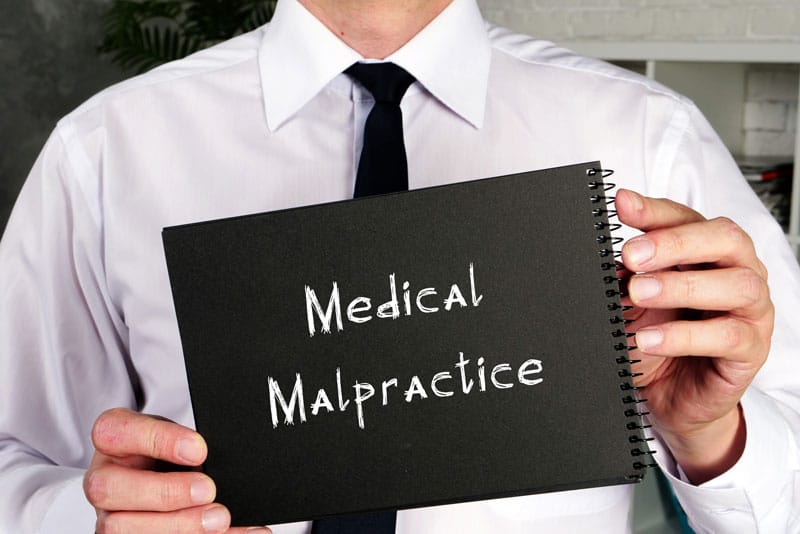Surgical procedures are complex and delicate undertakings that carry inherent risks. While most surgeries are successful, surgical errors can occur, leading to devastating consequences for patients and potential medical malpractice claims. It is estimated that surgical errors and other medical mistakes contribute to the $1.3 billion in medical malpractice compensation that medical care providers and medical facilities pay every year. When a malpractice case arises, the medical records of the plaintiff will have to be reviewed. Medical record review for medical malpractice cases is a valuable service that attorneys can utilize to handle the challenge of reviewing voluminous medical records.
MOS provides dedicated medical record review services for legal professionals.
For more details, call 800-670-2809 today!
Errors That Lead to Medical Malpractice Cases
- Wrong-Site Surgery: One of the most common surgical errors is wrong-site surgery, where a surgeon operates on the wrong part of the patient’s body. This mistake can occur due to communication breakdown, inadequate preoperative verification, or confusion in the operating room. Wrong-site surgery not only leads to physical harm but also causes emotional trauma and compromises patient trust in the healthcare system.
- Surgical Instrument and Foreign Object Retention: Leaving surgical instruments or foreign objects (such as sponges or gauze) inside a patient’s body after surgery is another serious surgical error. This can result in infections, internal injuries, and further surgeries to remove the retained object. Proper surgical count protocols and communication among the surgical team are essential to prevent these errors.
- Anesthesia Errors: Anesthesia is a critical aspect of any surgical procedure. Anesthesia errors can involve administering incorrect dosages, failure to monitor the patient’s vital signs adequately, or allergic reactions to anesthesia drugs. Anesthesia errors can lead to life-threatening complications, brain damage, or even death.
- Nerve Damage and Organ Perforation: Surgeons must exercise extreme care during procedures to avoid damaging nearby nerves and organs. Nerve damage can lead to permanent loss of sensation or function, while organ perforation can cause internal bleeding, infection, and additional surgeries.
- Inadequate Postoperative Care: Proper postoperative care is crucial for a patient’s recovery. Negligence in postoperative monitoring and management can lead to complications such as infections, delayed healing, and unnecessary pain and suffering for the patient.
- Lack of Informed Consent: Surgical errors can also involve a lack of informed consent. Informed consent ensures that patients are fully aware of the risks, benefits, and potential complications of a surgical procedure. Failure to obtain informed consent can lead to legal claims of medical malpractice.
How to Prevent Surgical Errors and Medical Malpractice
To mitigate surgical errors and reduce the risk of medical malpractice claims, hospitals and healthcare providers can implement several key strategies:
- Improved Communication: Enhance communication between surgical team members and establish clear protocols for preoperative verification and surgical site marking.
- Robust Checklists: Implement surgical checklists to ensure that all necessary steps are followed before, during, and after surgery.
- Continued Education: Encourage ongoing education and training for surgical teams to stay updated on best practices and safety protocols.
- Enhanced Monitoring: Utilize advanced monitoring technology to closely track patients’ vital signs during surgery and in the postoperative period.
- Support for Healthcare Professionals: Provide support programs to address burnout and fatigue among surgeons and other healthcare staff.
As a medical record review company assisting medical malpractice attorneys, we understand that surgical errors leading to malpractice cases can be very distressing and have long-term consequences for both patients and healthcare providers. By prioritizing patient safety, open communication, and continuous improvement, the healthcare industry can work towards minimizing surgical errors and delivering better outcomes for patients undergoing surgical procedures. Attorneys handling medical malpractice cases strive to develop a strong case on behalf of the injured victim. They utilize medical record summary services to obtain the necessary medical information which is vital to make an informed decision. With all the required data available, attorneys help plaintiffs determine whether they have a valid claim.
For medical record review for medical malpractice cases, call 1-800-670-2809.




